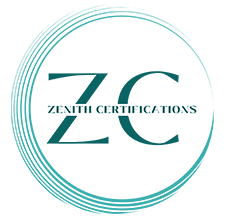Ensure high-quality organic products, and protect consumers across Worldwide
Our Services
Detailed content is under process and will be flashed after accreditation
Disclaimer: These policies and procedures will take effect once ZENITH achieves official recognition by EU commission and accreditation by USDA NOP. Currently, ZENITH is in the recognition phase for EU Regulation 2018/848 by the EU Commission and is undergoing document review by USDA-NOP. COR scheme is applicable since 17 October 2024 onwards
ZENITH’S OFFICIAL LANGUAGE IS ENGLISH ONLY. ZENITH will accept the applications from the operations that understand and submit the applications in English.
Steps of Certification
Step by step process for certification with ZENITH :
STEP 1 : Express your interest either select the department /scheme and fill the form OR you may contact directly ZENITH via email at info@zenithcertifications.com for enquiry (Interested applicants can check general fee structure for the respective scope applicable)
Select the department/Scheme and fill the form
STEP 2 : ZENITH will share you Certification fees , and upon successful agreement over quotation will share application packet
STEP 3: Application Review AND Preliminary Compliance Review
STEP 4: Audit Plan & On-Site Inspection/Evaluation
STEP 5: Inspector forwards an inspection report to the ZENITH office for review.
STEP 6 : Final Certification Review and Certification Decision
Annual Update & Certification Renewal : Operator will be notified for renewal timeline and include renewal application packet to be submitted. A certified operation must submit an updated OSP and fees to its certifier at least once per year to continue its organic certification (Step 3 -6 will be followed as mention above).
Access to Certification Packet
The ZENITH certification packet provides everything you need to get started today. First, complete your Organic Management Plan (OMP). Once implemented, ZENITH will review your OMP for completeness and compliance. An inspector will then visit your operation to assess the performance of your OMP. Afterward, ZENITH will review the inspector’s report to ensure compliance with applicable standards and make a decision regarding your organic certification.
In the realm of organic agriculture and food production, ZENITH Intend to play a vital role in ensuring transparency, integrity, and trustworthiness. Upon receiving accreditation, ZENITH will be entitled with certifying organic products, farms, Wild harvest, Livestock producers and processors/handlers, verifying compliance with strict organic standards and regulations. In this comprehensive overview, ZENITH explore the fundamental principles, functions, and importance of organic in promoting sustainable practices and consumer confidence in the organic industry.
Accreditation and Compliance:
- Emphasizing the importance of accreditation in organic certification to ensure credibility, impartiality, and competence.
- Emphasizing the criteria and requirements for organic certification, including adherence to organic farming practices, use of organic inputs, and compliance with labeling and traceability requirements.
Organic Certification Processes:
- Providing an overview of the organic certification process, from application and inspection to certification and ongoing compliance monitoring.
- Explaining the role of inspectors and auditors in assessing organic farms, processors/handlers, Wild harvest, Livestock producers to ensure compliance with organic standards
- Discussing the importance of documentation, record-keeping, and traceability in organic certification to maintain transparency and integrity throughout the supply chain.
Benefits of Organic Certification:
- Enumerating the benefits of organic certification for farmers, processors, retailers, and consumers.
- Highlighting the value of organic certification in differentiating organic products in the marketplace, commanding premium prices, and accessing niche markets.
- Discussing the environmental, social, and health benefits of organic farming practices, including soil conservation, biodiversity conservation, and reduced exposure to synthetic pesticides and fertilizers.
ZENITH obtains financial support through certification charges only.
Please be noted that Information about certified operations submitted as part of the application process or evidenced during onsite inspections is kept strictly confidential, and confidentiality agreements are in force for all personnel and Staff of ZENITH, who have access to this information. Business related information is not revealed to third parties, with the exception of the officials of Accreditation Body, Regulatory body or other applicable government official (as applicable to certification request under standard or regulation) or his authorized representative unless permission is granted by the certified operation.
EU2018/848
EU organic is a standard for organically produced foods which is recognised in the European Union.
ZENITH offers mentioned categories upon recognition with EU Commission :
A – Grower Group: Unprocessed plants and plant products, including seeds and other plant reproductive material
A – Individual: Unprocessed plants and plant products, including seeds and other plant reproductive material
D – Processed agricultural products, including aquaculture products, for use as food
E – Feed
G – Grower Group: Other products listed in Annex I to the Regulation EU 848/2018 or not covered by the previous categories
G – Individual: Other products listed in Annex I to the Regulation EU 848/2018 or not covered by the previous categories
COR (Cannada Organic Regime)
Canada and the US have signed an organic food equivalence agreement since 2009. Products certified under the US National Organic Program can also be sold as organic in Canada.
ZENITH offers mentioned categories for standard: CAN/CGSB-32.310-2020 and CAN/CGSB-32.311-2020
- Crop production
- Livestock feed
- Livestock production
- Processed products
- Greenhouse crops
- Wild crops
- Grower Group
